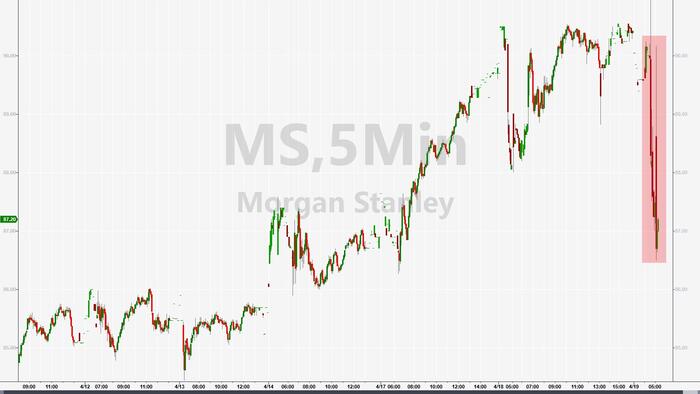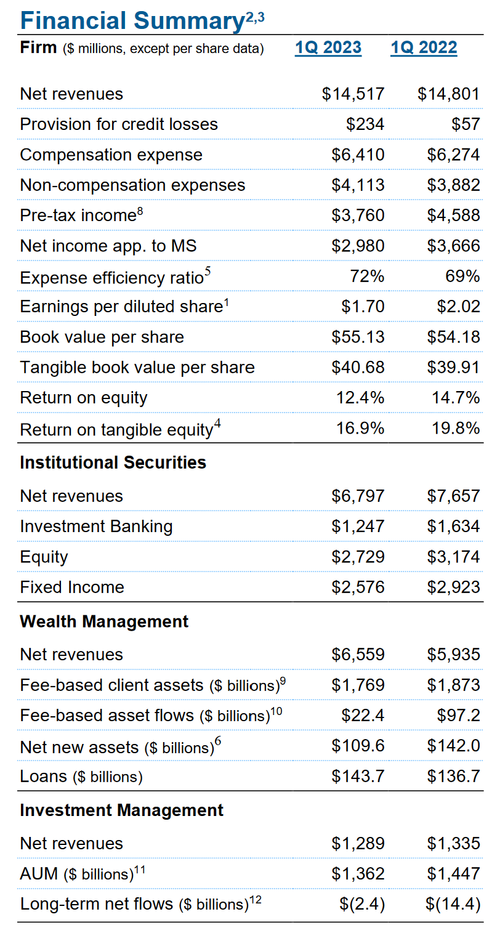


On the surface, Morgan Stanley's earnings should have been strong enough to prompt a boost in the stock price: unlike its biggest competitor Goldman, which yesterday tumbled after reporting lousy Q1 numbers including a rare miss in FICC, MS not only beat across the board but also saw its investment bank generate stronger than expected results; even so, both revenue and profits dropped Y/Y, with net income down to $3.0 billion, or $1.70 per diluted share, vs net income of $3.7 billion, or $2.02 per diluted share, for the
same period a year ago. Here is a summary of what the bank reported:
And visually:
Here are several other notable numbers:
Including key credit metrics:
The bank also noted that Wealth Management attracted $110 billion of new assets during the quarter, leading to $6.6BN in net revenues, positively impacted by mark-to-market gains on "investments associated with certain employee deferred compensation plans compared to losses a year ago." The results "reflect higher net interest income versus prior year primarily driven by higher interest rates, even as clients continue to redeploy sweep deposits. These results were partially offset by an increase in expenses as well as higher provisions for credit losses."
MS also said that its Investment Management results reflected net revenues of $1.3 billion on AUM of $1.36 trillion (vs $1.33 trillion exp) amid declines in asset values from a year ago.
And a few other notable comments:
So far so good, but what has spooked investors this morning and sent the stock price lower after an initial kneejerk higher, was the bank's admission that not all is well, specifically as relates to the "credit event bogeyman" du jour. To wit, Morgan Stanley revealed that it took a provision for credit losses of $234 million, more than double the estimated $99.1 million, and more than quadrupling the $57 in Q1 '22, and here's why:
Increases in provisions for credit losses were primarily related to commercial real estate and deterioration in the macroeconomic outlook from a year ago.
As a result, after briefly spiking above $90, MS stock has dipped as low as $86.5, which however is hardly a disaster as it represents a value seen just this Monday.

